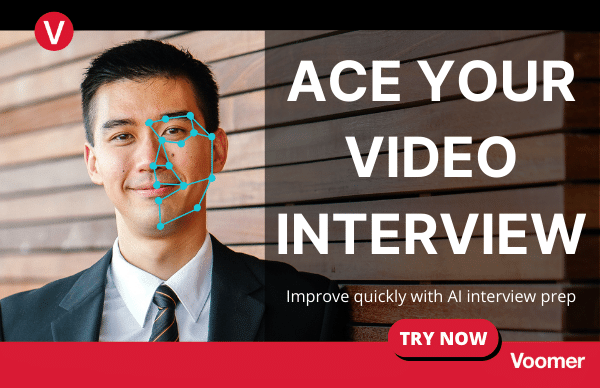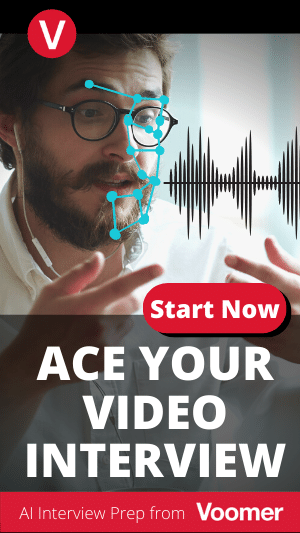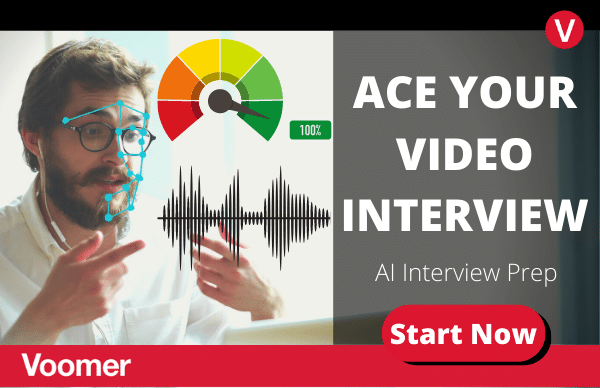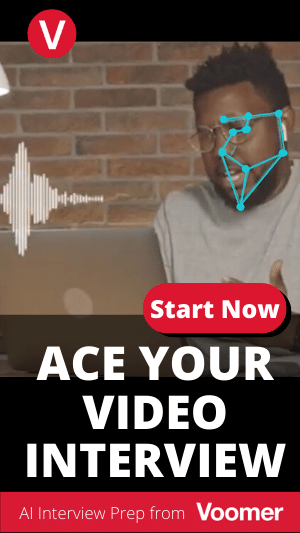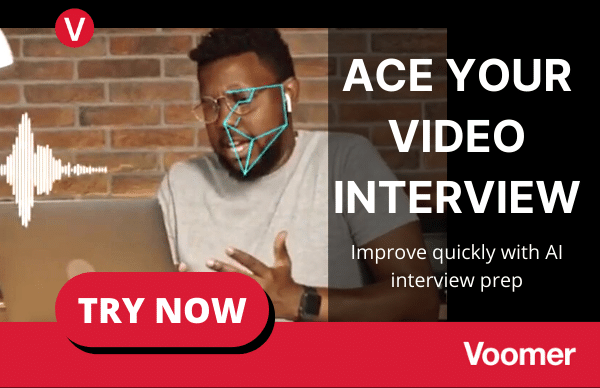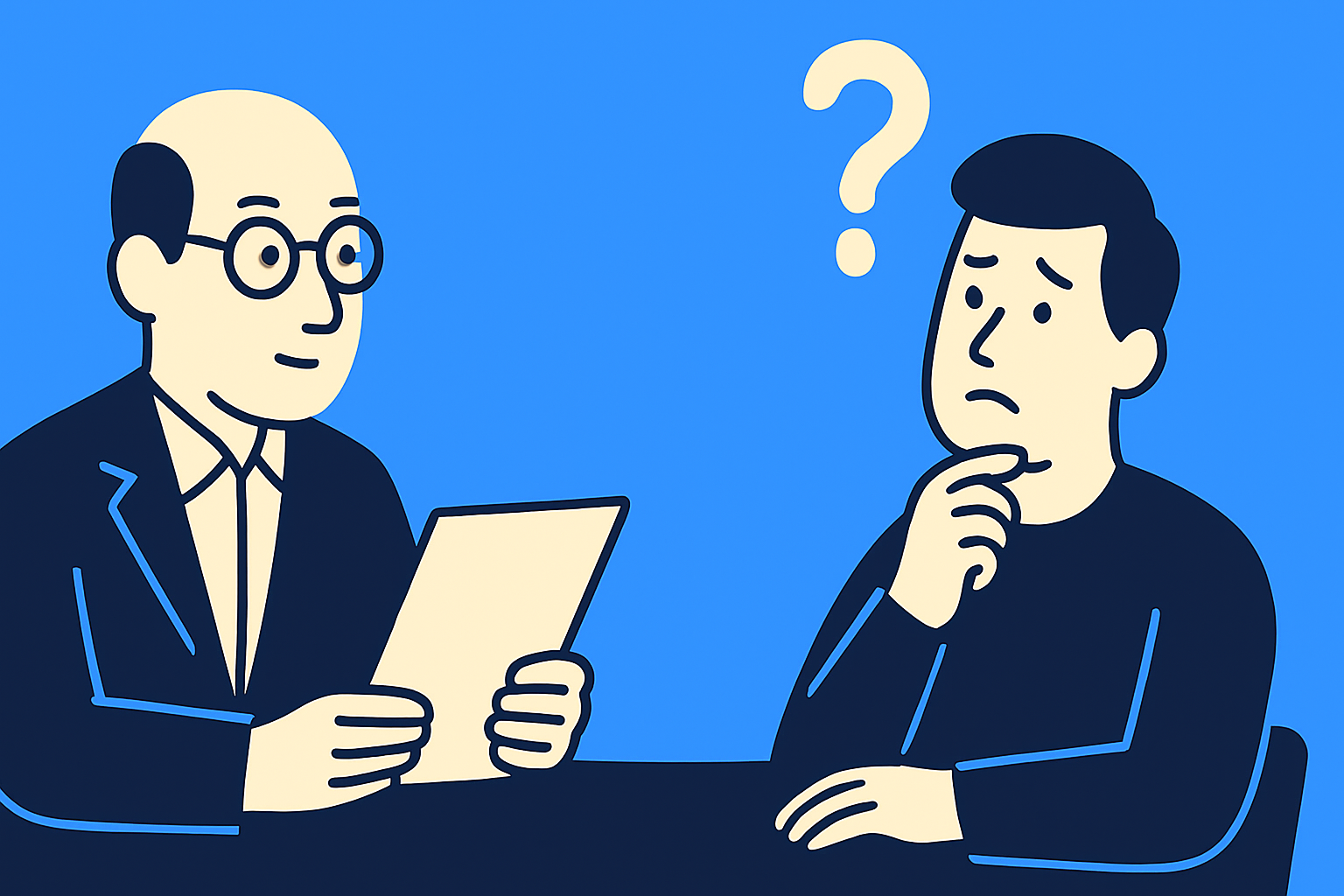
How to answer common interview questions
Get ahead by knowing how to answer these common interview questions!
It is important to practice your answers to some of the main interview questions often asked by interviewers. This is one of the most effective ways to prepare and will help you to feel more confident. You can use Voomer to practice your answers and get AI powered feedback on your performance.
Know the company
Most interviewers want to see that you have a genuine interest in working for them. To assess this, they have an expectation that a candidate will have read any recent major news about the company, the about page on their website and have a good understanding of what they do and their corporate values. They may ask questions like:
- Why do you want to work for us?
- What are your thoughts on our products/services?
- What do you know about our company?
- Why do you think you’re a good fit for our company?
To prepare for questions about the company, you need to research the company. Luckily, much of this information is located on their website.
For recent news check their website for “press releases” or do a Google search. This will let you know if there have been any recent product launches, changes in leadership or other major events. To understand the company’s values and culture, check their “about us” page or look for a “mission statement”. For large public companies the investor relations website will often be well organized and have less marketing fluff that the main website.
See how you can incorporate what you’ve learned about the company in various interview questions. For example, if one of the company core values is trust and integrity, you can directly reference this fact in your answers: “I know Company X values trust and integrity, which is something I prioritize in my work as well.”
Know yourself
Interviewers will want to get to know you better. The most common questions they will ask is:
“Tell me about yourself”
This question is not only awkward, but also often asked as an opening question to an interview leaving you little insight into what the interviewer is looking for. Here is a video we made on this particular question: How to answer “Tell me about yourself”. We also have a guide on how to answer here.
Other common questions to get to know you better include:
- How would your colleagues describe you?
- What do you do in your spare time?
- What motivates you?
- What are your hobbies and interests?
- If you were an animal, what would you be and why?
Some of these questions may seem odd, but the interviewer is trying to learn about your approach, personality, and values. Remember some of these questions are designed to not have a correct answer, so practice speaking without preparation. For example for the “if you can be any animal” question, try not to overthink your answer. Instead, focus on showing what kind of personal qualities, interests and skills you have: “I would be a lion because I fearlessly take on challenges and am comfortable leading by example.”
You can show what kind of personal qualities, interests and skills you have. For example, you could talk about:
- Volunteering — to show you’re community minded
- Reading — to show you’re curious and like to learn new things
- Fitness — to show you’re disciplined and committed
- Cooking — to show you’re organised and can follow instructions
- Team sports — to show you have good communication
- Music and arts — to show you’re creative
If the job requires certain skills or competencies, you should demonstrate these in your examples. The job description will give you clues about what skills and competencies the company is looking for.
Your Work history
Interviewers usually base questions on jobs and experiences from the past. These are known as behavioral questions, here is a video on how to answer them. This gives you the chance to talk about yourself, your personality, and the way you react to different situations and challenges. For example, they might ask:
- When have you faced a challenging situation?
- Tell me about a time when you worked as part of a team.
- Can you tell us about a personal achievement at work?
- When have you taken the initiative?
- Have you ever failed?
Your answers should reflect the skills the interviewer wants. Be positive and tailor your examples to the job description. If you don’t have much work history, you can use examples from outside of work. You can also use examples from volunteering experience. Use the STAR method to help structure your answers to behavioral questions. If you haven’t heard of the STAR method before, check out our YouTube video here.
Strengths
The strengths interviewers look for will depend on the position you are applying for. There are many clues within the job description that will highlight the “must haves” skills and competencies for the position. They may ask you questions like:
- What are your main strengths? How to answer
- Why should we hire you?
You can use specific examples to highlight your strengths, such as:
- Communication — to show you get on with others
- Problem solving — to show that you can find solutions
- Enthusiasm — to show that you have a positive attitude to work
- Flexibility — to show that you can adapt to different ways of working
Plan your answers around 2 or 3 examples that are relevant to the job. You can back these up with qualifications, training, or experiences you’ve had.
Weaknesses
You should be honest when answering questions on your weaknesses. Say how you’re working to improve them.
- What are your weaknesses? How to answer
Example
Question — “Do you have any weaknesses?” Answer — “I sometimes struggle with time management on projects. To make sure I stick to the time frame I’m creating a timetable of steps at the start of each project”.
Ask your own questions
At the end of a job interview, interviewers will usually ask if you have any questions for them. This is a good chance to show your interest in the company and your enthusiasm for the job.
We made a video about questions you can ask here. For example, you could ask:
- What is it like to work here?
- What does your typical day involve?
- How do you see the company developing over the next few years?
- How can I continue to develop my expertise after I start?
Why you left your last position
The interviewer may ask you questions about leaving your last job.
If you’ve been out of work for a long time, explain why. Talk about the positive things you’ve done while away from work. For example, networking, retraining, volunteering or keeping fit. Interviewers are often reluctant to ask too directly about long gaps in employment history because it may reveal something personal about you they could be accused of discriminating against. Indeed, some companies tell interviewers to never ask about gaps in employment history.
If you:
- Left by choice: be positive about why you want a new job and describe why their company suits you better
- Got made redundant: explain the situation, be positive and describe how you’ve responded since
- End of contract: explain why the contract ended and what you’ve done since then
Remember to avoid badmouthing your previous employer. Often, we can become comfortable sharing all the details with close friends and family about what we loved and hated about our past jobs. However, in a professional setting remember to keep your answers forward looking. If you talk very negatively about your previous employer, the interviewer may think you will do the same about them in the future.
Conclusion
If you are like most people, preparing for an interview is stressful, but if you take the time to research the company and practice your answers to common questions using a tool like Voomer, you’ll feel more confident and ready to impress the interviewer. Good luck!

